Looking for a Personalized Diet Plan?
Which Dal is High in Protein?
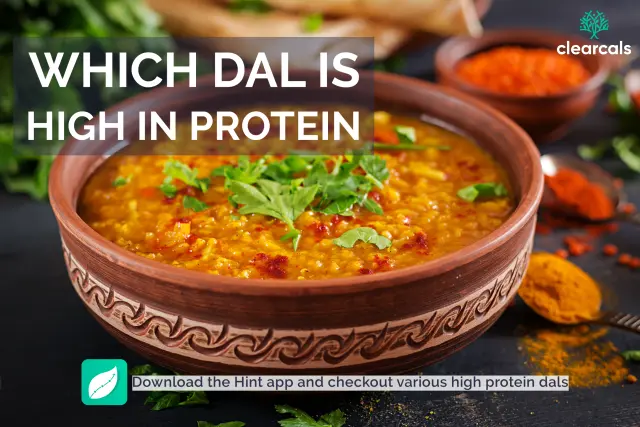
TLDR
- High-protein foods are essential for muscle growth and strength.
- Dals are an excellent plant-based protein source, rich in vitamins and minerals.
- The Hint app provides free protein intake tracking, high-protein dal recipes, personalized diet plans, and Pro Workouts features to support your fitness journey.
High Protein Dal
In the realm of wholesome nutrition, dals, or lentils, have long reigned as a cherished cornerstone of balanced diets. Their versatility, affordability, and rich nutrient profile make them an invaluable asset for those seeking to fortify their meals with essential proteins.
In this comprehensive guide, we embark on a journey through the world of high-protein dals, uncovering their nutritional prowess and highlighting their indispensable role in promoting overall health and wellness.
From the humble green gram to the robust black lentil, each variety of dal brings its unique set of nutrients to the table. We will delve into the precise nutritional breakdown of these dals, especially shedding light on their protein content.
Whether you’re a seasoned health enthusiast or just starting your journey with plant-based proteins, these dals are an exceptional way to boost your protein intake and meet daily nutritional needs.
With the Hint app, you can easily access high-protein recipes, a free protein intake tracking feature, and more. The Pro Workouts feature and personalized diet plans available through Hint Pro and Hint Premium will support your fitness and wellness journey every step of the way.
Let's dive in and discover some high-protein dals along with their protein content.
1. Masoor dal protein
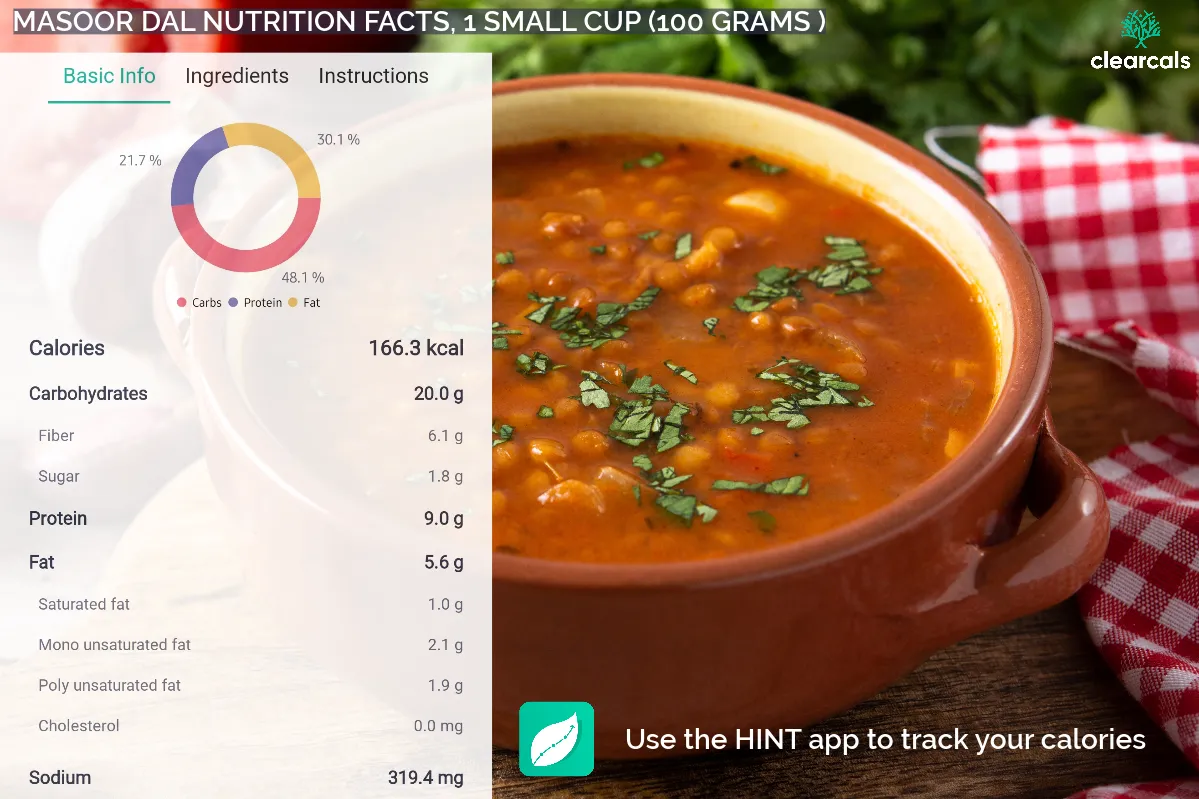
Masoor Dal Nutrition
Calories in one small cup of masoor dal rassa are 166.3 kcal. Out of these calories, 48.1% is from carbohydrates, 21.7% is from protein and 30.1% is from fats.
Masoor dal is a good source of protein, vitamin C, potassium, iron, vitamin B5, vitamin E, magnesium, copper, selenium, and manganese, and an excellent source of dietary fiber, Vitamin D, copper, and selenium.
Masoor Dal Protein
A great plant-based protein source, ideal for muscle repair and growth. Approximately 9 grams of protein per 100g, making it an efficient protein source.
Here is a breakdown of protein in masoor dal increases with the quantity.
| Masoor Dal Rassa Quantity (in grams) | Masoor Dal Protein (grams) |
|---|---|
| 1 Small Cup (100 grams) | 9.0 |
| 1 Medium Cup (200 grams) | 18.1 |
| 1 Large Cup (300 grams) | 27.1 |
Is Masoor Dal Good for Health?
Yes, it’s low in calories, high in fiber, and supports heart health. It's a great option in case of iron deficiency- -anemia and also helps in weight loss.
Masoor Dal Benefits
Supports heart health, aids in digestion, and helps in managing weight due to high fiber and essential minerals.
2. Moong Dal Protein
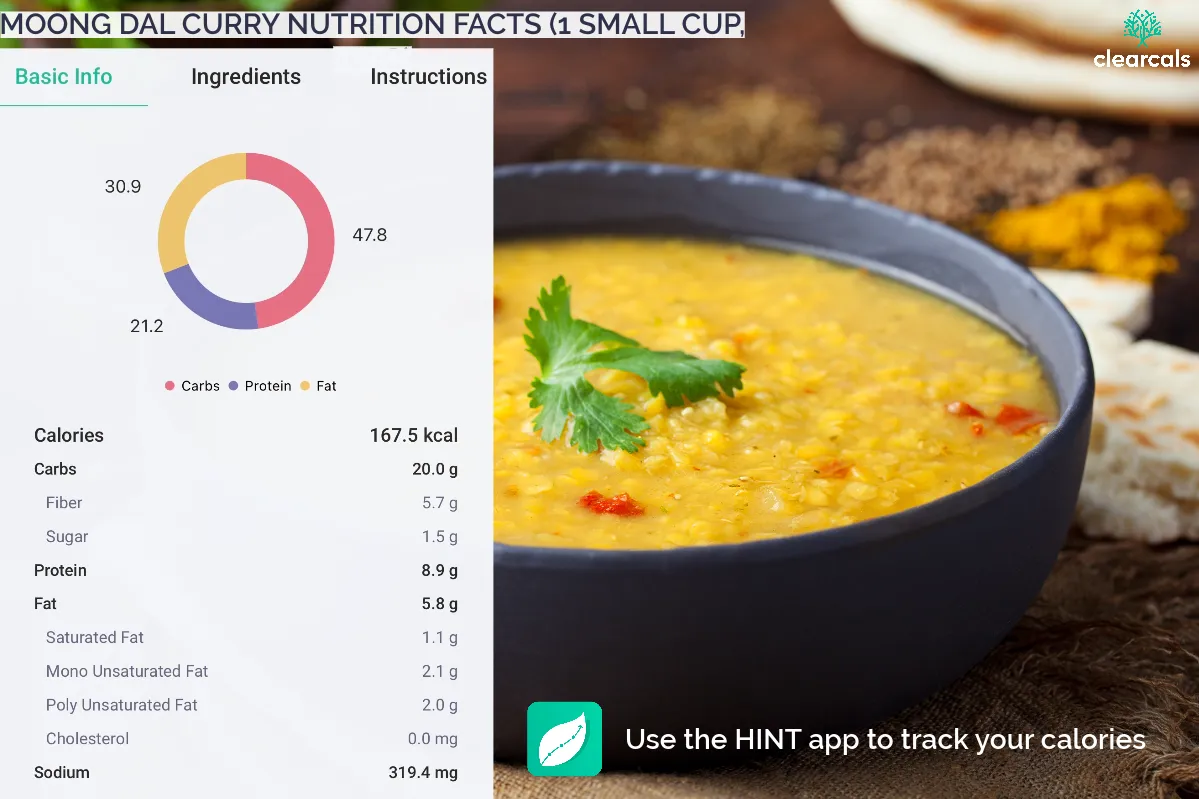
1 small cup of Moong Dal Curry provides 8.9 g of protein.
Calories in one small cup of moong dal curry are 167.5 kcal. Out of these calories, 47.8% is from carbohydrates, 21.2% is from protein and 30.9% is from fats.
Here is a breakdown of protein in moong dal curry increases with the quantity.
| Moong Dal Curry Quantity (in grams) | Moong Dal Protein (grams) |
|---|---|
| 1 Small Cup (100 grams) | 8.9 |
| 1 Medium Cup (200 grams) | 17.8 |
| 1 Large Cup (300 grams) | 26.7 |
Moong dal is a good source of potassium, protein, vitamin C, phosphorus, magnesium, iron, manganese, copper, selenium, and vitamin D. It helps with muscle gain, lowers blood pressure, and boosts immunity.
For a deeper dive into Moong Dal's nutritional profile and health benefits, check out our detailed blog on Moong Dal Calories, Nutrition, and Health Benefits.
It covers everything from the dal's impressive protein content to its role in muscle gain, immunity, and overall wellness.
This guide will give you a comprehensive understanding of why moong dal is an exceptional choice for both everyday meals and specialized diets.
3. Arhar Dal Protein / Toor Dal Protein
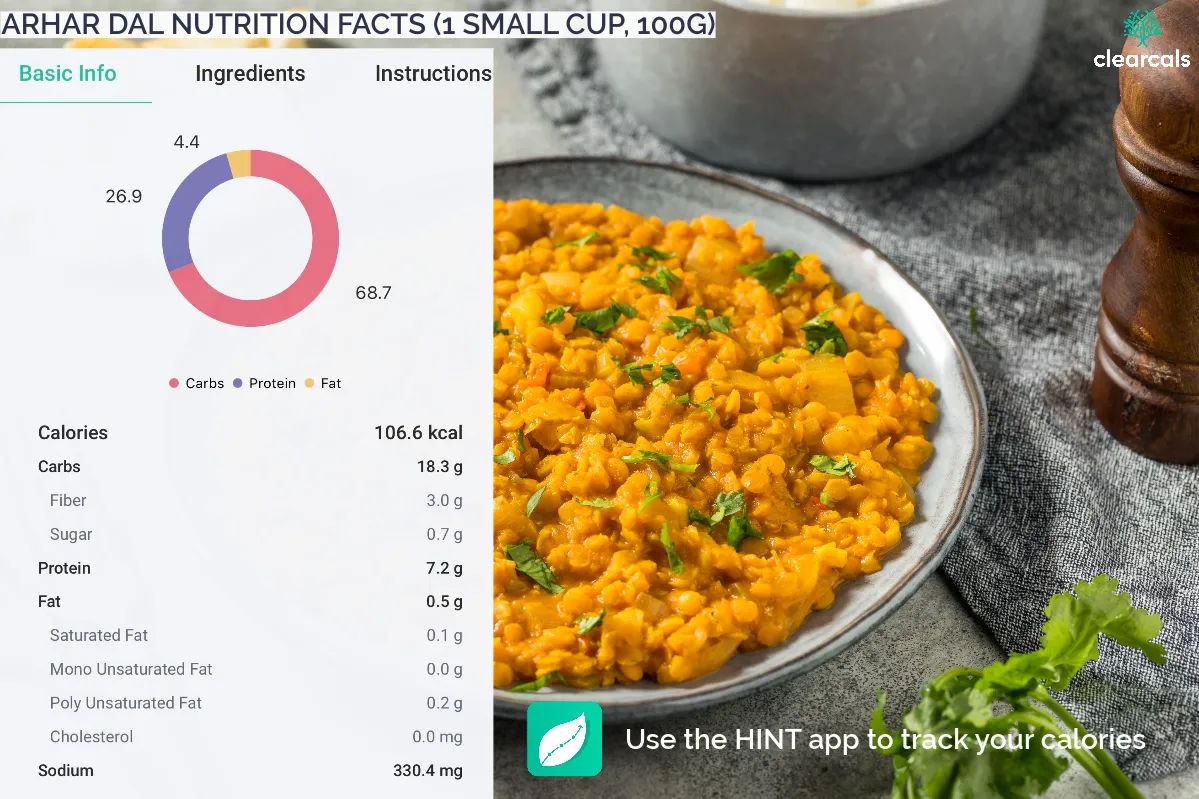
1 small cup of Arhar Dal, also called Toor Dal provides 7.2 g of protein.
Calories in one small cup of arhar dal are 106.6 kcal. Out of these calories, 68.7% is from carbohydrates, 26.9% is from protein and 4.4% is from fats.
Here is a breakdown of protein in toor dal increases with the quantity.
| Toor Dal Quantity (in grams) | Toor Dal Protein (grams) |
|---|---|
| 1 Small Cup (100 grams) | 7.2 |
| 1 Medium Cup (200 grams) | 14.3 |
| 1 Large Cup (300 grams) | 21.5 |
Arhar Dal Benefits
Arhar dal is a good source of protein, dietary fiber, potassium, phosphorus, selenium, thiamin, and an excellent source of copper.
It aids in muscle building and improves red blood cell count.
4. Chole (Chickpeas) Protein
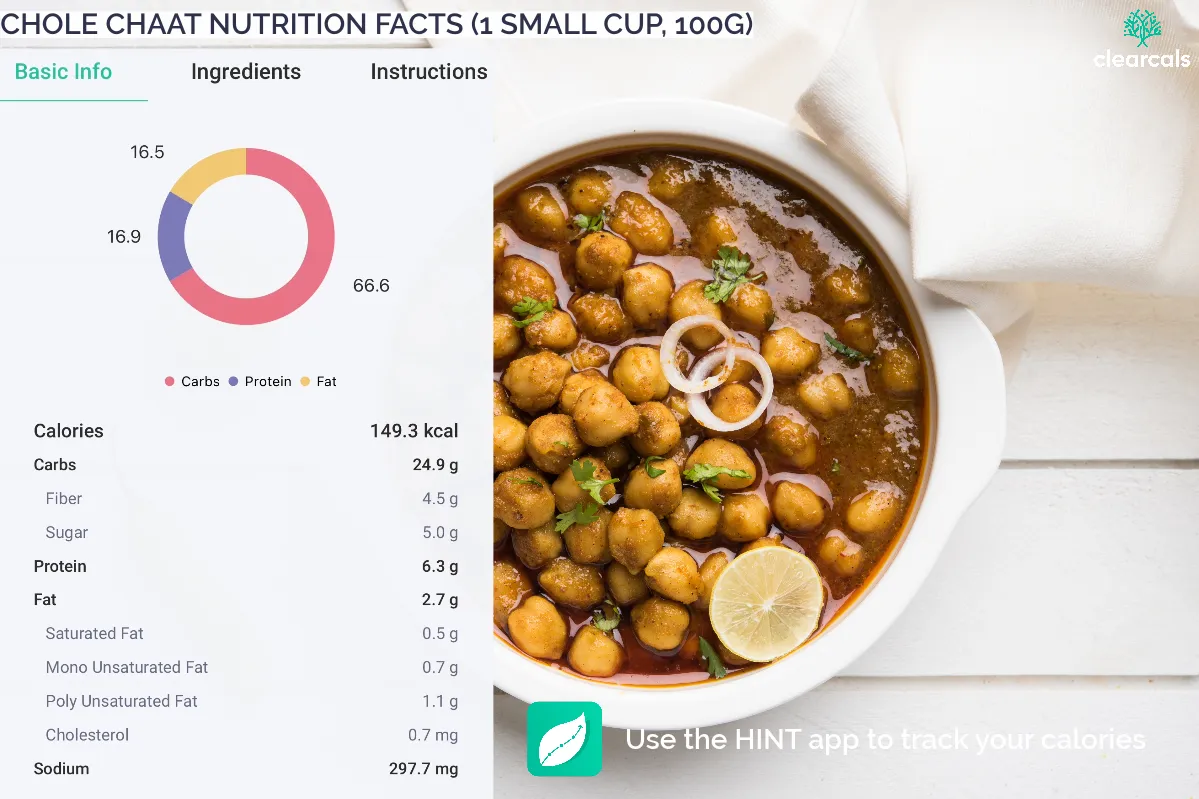
1 small cup of Chole Chaat provides 6.3 g of protein.
Calories in one small cup of chole dal are 149.3 kcal. Out of these calories, 66.6% is from carbohydrates, 16.9% is from protein and 16.5% is from fats.
Here is a breakdown of protein in chickpeas increases with the quantity.
| Chickpeas Quantity (in grams) | Masoor Dal Protein (grams) |
|---|---|
| 1 Small Cup (100 grams) | 6.3 |
| 1 Medium Cup (200 grams) | 12.6 |
| 1 Large Cup (300 grams) | 19.0 |
Chole chaat is a good source of dietary fiber, protein, vitamin C, beta carotene, lycopene, lutein, copper, thiamine, and vitamin B6, and an excellent source of manganese, and folate.
It boosts immunity, provides satiety, and aids in weight loss.
5. Urad Dal Protein
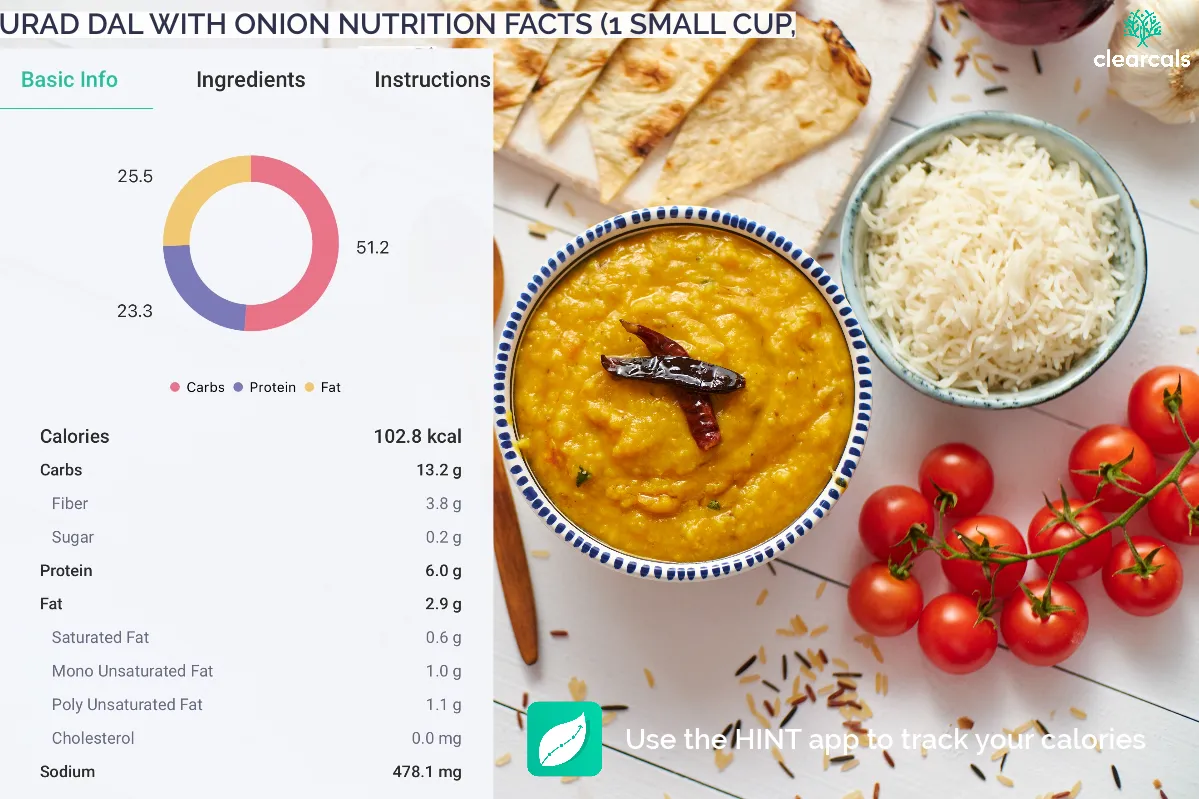
1 small cup of Urad Dal with onion provides 6.0 g of protein.
Calories in one small cup of urad dal with onion are 102.8 kcal. Out of these calories, 51.2% is from carbohydrates, 23.3% is from protein and 25.5% is from fats.
Here is a breakdown of protein in urad dal increases with the quantity.
| Urad Dal Quantity (in grams) | Urad Dal Protein (grams) |
|---|---|
| 1 Small Cup (100 grams) | 6.0 |
| 1 Medium Cup (200 grams) | 12.0 |
| 1 Large Cup (300 grams) | 18.0 |
Urad Dal Benefits
Urad dal with onions is a good source of protein, dietary fiber, potassium, phosphorus, magnesium, copper, selenium, manganese, vitamin B5, and vitamin D.
It helps lower the risk of heart disease and strengthen bones.
6. Green moong dal protein
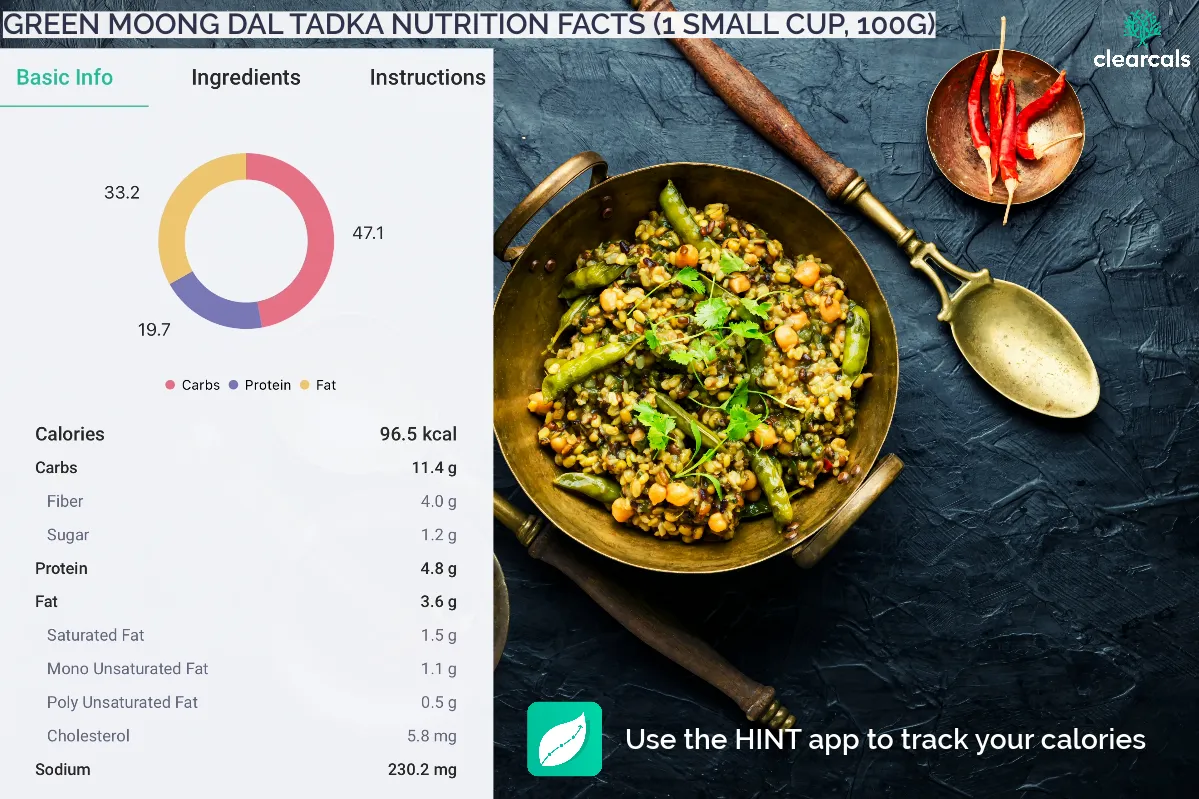
1 small cup of green moong dal tadka provides 4.8 g of protein.
Calories in one small cup of green moong dal tadka are 96.5 kcal. Out of these calories, 47.1% is from carbohydrates, 19.7% is from protein and 33.2% is from fats.
Here is a breakdown of protein in green moong dal increases with the quantity.
| Green Moong Dal Quantity (in grams) | Green Moong Dal Protein (grams) |
|---|---|
| 1 Small Cup (100 grams) | 4.8 |
| 1 Medium Cup (200 grams) | 9.5 |
| 1 Large Cup (300 grams) | 14.3 |
Green moong dal tadka is a good source of dietary fiber, potassium, magnesium, copper, selenium, and manganese, and an excellent source of Vitamin D, beta carotene, and lutein.
It helps boost immunity and strengthen muscles and bones.
7. Lobia Protein
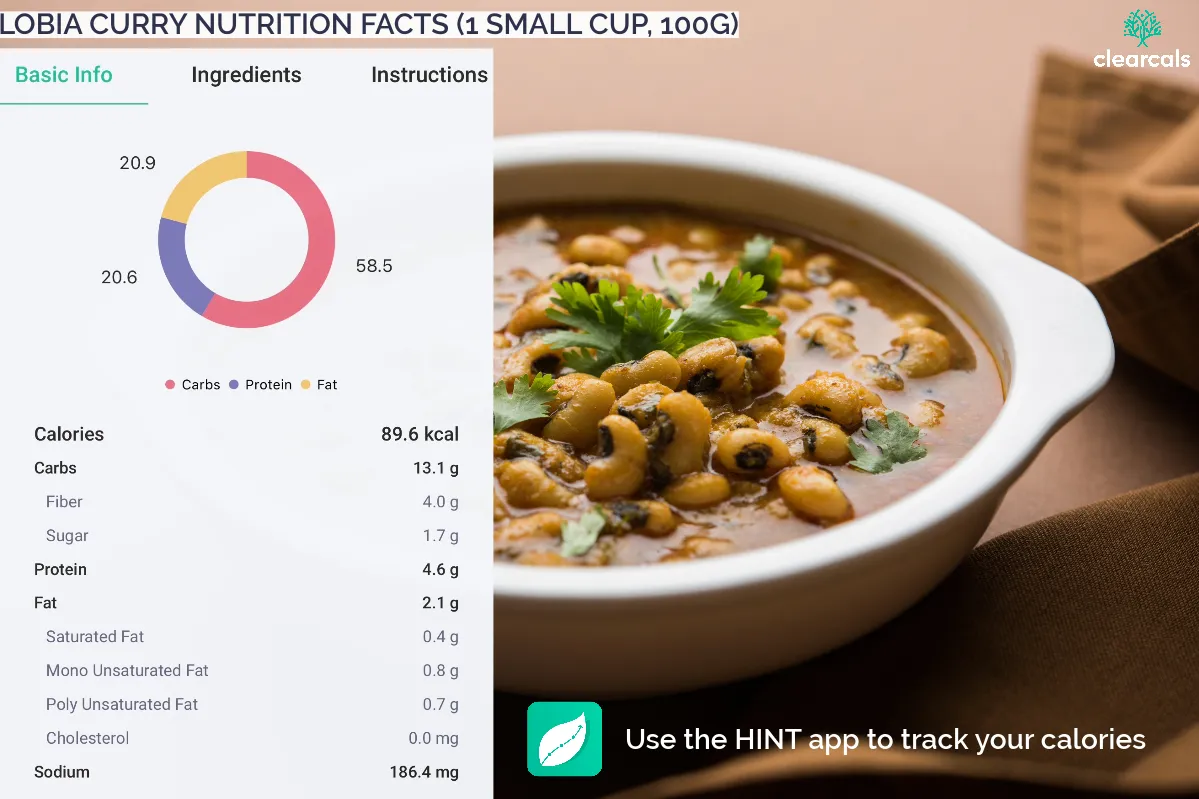
1 small cup of lobia curry provides 4.6 g of protein.
Calories in one small cup of urad dal with onion are 89.6 kcal. Out of these calories, 58.5% is from carbohydrates, 20.6% is from protein and 20.9% is from fats.
Here is a breakdown of protein in lobia dal increases with the quantity.
| Lobia Curry Quantity (in grams) | Lobia Protein (grams) |
|---|---|
| 1 Small Cup (100 grams) | 4.6 |
| 1 Medium Cup (200 grams) | 9.2 |
| 1 Large Cup (300 grams) | 13.9 |
Lobia Benefits
Lobia curry is a good source of dietary fiber, vitamin C, vitamin D, manganese, copper, selenium, manganese, and an excellent source of beta carotene, lycopene, and lutein.
It helps in weight loss and diabetes management.
8. Rajma Protein
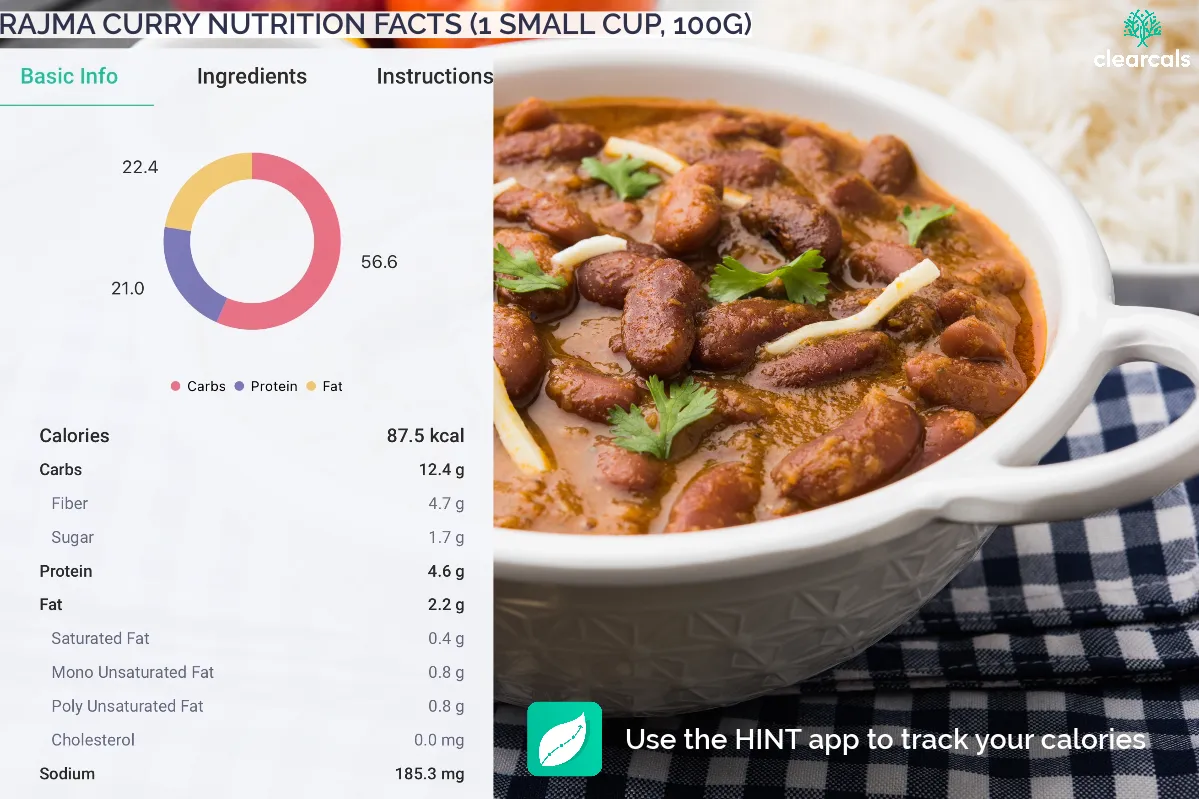
1 small cup of Rajma curry provides 4.6 g of protein.
Calories in one small cup of rajma curry are 87.5 kcal. Out of these calories, 56.6% is from carbohydrates, 21.0% is from protein and 22.4% is from fats.
Here is a breakdown of protein in rajma increases with the quantity.
| Rajma Quantity (in grams) | Rajma Protein (grams) |
|---|---|
| 1 Small Cup (100 grams) | 4.6 |
| 1 Medium Cup (200 grams) | 9.2 |
| 1 Large Cup (300 grams) | 13.8 |
Rajma Benefits
Rajma curry is a good source of dietary fiber, vitamin C, potassium, magnesium, copper, selenium, and manganese, and an excellent source of Vitamin D, beta carotene, lycopene, and lutein.
It helps in weight loss as it provides satiety and helps in diabetes management.
Is Rajma Good for Health?
Absolutely; it supports heart health, blood sugar control, and digestive function.
Is Rajma Good for Weight Loss?
Yes, due to its high fiber content, which aids satiety and weight management.
Is Rajma Good for Diabetes?
Yes, rajma has a low glycemic index and helps regulate blood sugar levels.
9. Chana Dal Protein
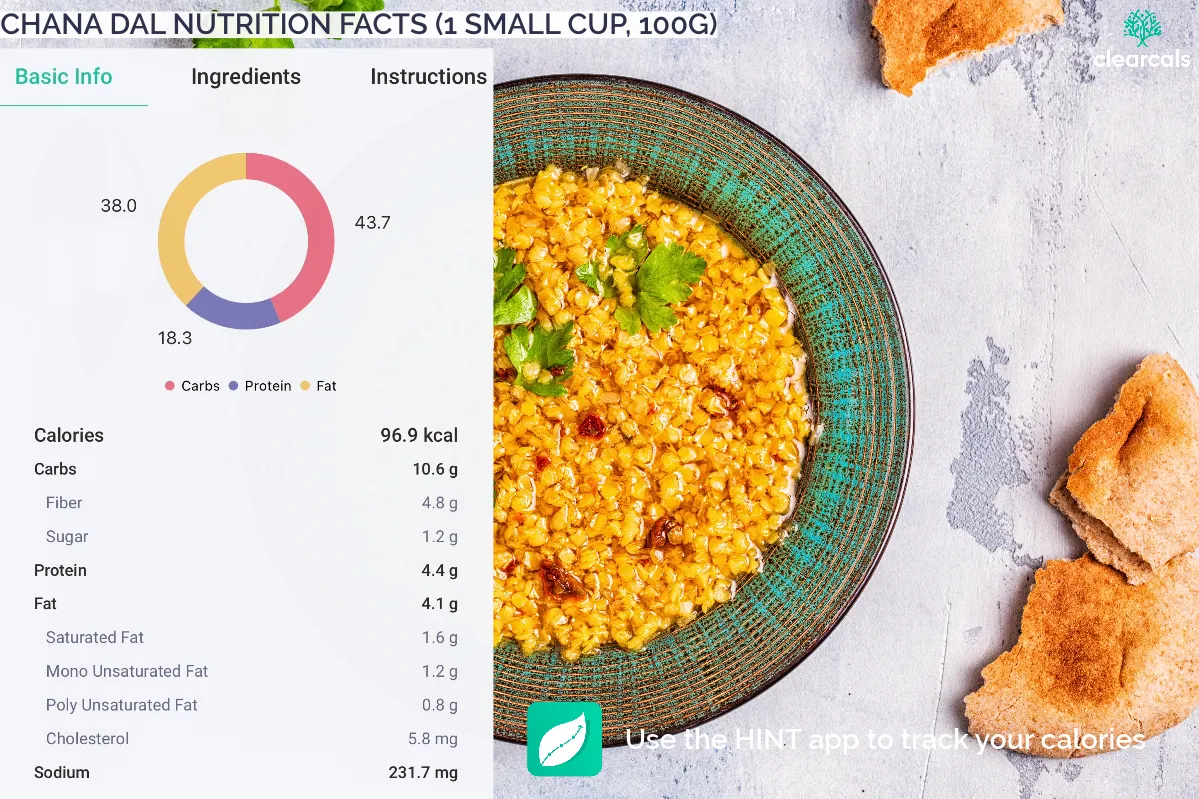
1 small cup of Chana Dal provides 4.4 g of protein.
Calories in one small cup of chana dal are 96.9 kcal. Out of these calories, 43.7% is from carbohydrates, 18.3% is from protein and 38.0% is from fats.
Here is a breakdown of protein in chana dal increases with the quantity.
| Chana Dal Quantity (in grams) | Chana Dal Protein (grams) |
|---|---|
| 1 Small Cup (100 grams) | 4.4 |
| 1 Medium Cup (200 grams) | 8.9 |
| 1 Large Cup (300 grams) | 13.3 |
Chana dal is a good source of dietary fiber and copper. Manganese, beta carotene, and an excellent source of selenium, vitamin D, and lutein.
It helps strengthen bones and improves thyroid function.
10. Soybean dal protein
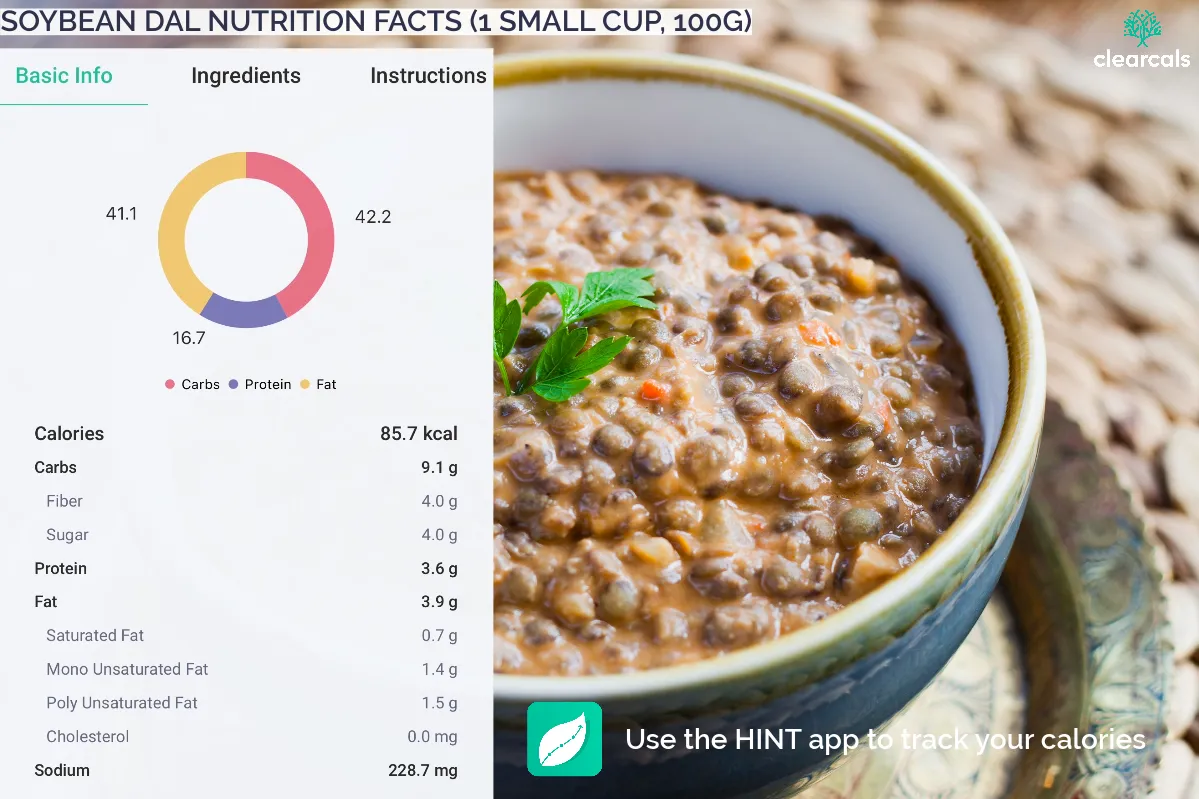
1 small cup of soybean dal provides 3.6 g of protein.
Calories in one small cup of soybean dal are 85.7 kcal. Out of these calories, 42.2% is from carbohydrates, 16.7% is from protein and 41.1% is from fats.
Here is a breakdown of protein in soybean dal increases with the quantity.
| Soybean Quantity (in grams) | Soybean Dal Protein (grams) |
|---|---|
| 1 Small Cup (100 grams) | 3.6 |
| 1 Medium Cup (200 grams) | 7.1 |
| 1 Large Cup (300 grams) | 10.7 |
Soybean dal is a good source of dietary fiber, vitamin E, potassium, magnesium, copper, selenium, and manganese, and an excellent source of Vitamin D, beta carotene, and lutein.
It helps strengthen bones and boost immunity.
11. Moong dal sprouts protein
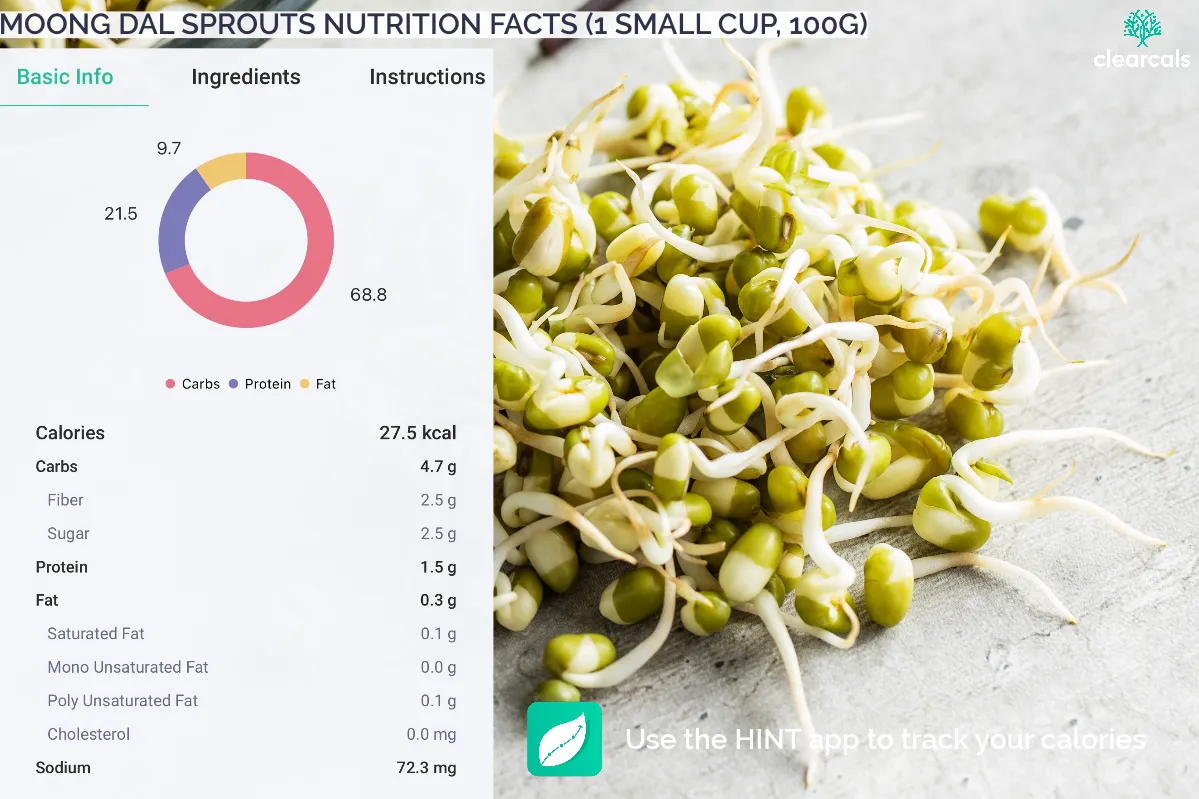
1 small cup of moong dal sprouts salad provides 1.5 g of protein.
Calories in one small cup of moong dal sprouts salad are 27.5 kcal. Out of these calories, 68.8% is from carbohydrates, 21.5% is from protein and 9.7% is from fats.
Here is a breakdown of protein in moong dal sprouts increases with the quantity.
| Moong Dal Sprouts Salad Quantity (in grams) | Masoor Dal Protein (grams) |
|---|---|
| 1 Small Cup (100 grams) | 1.5 |
| 1 Medium Cup (200 grams) | 3.0 |
| 1 Large Cup (300 grams) | 4.4 |
Moong dal sprouts are a good source of vitamin C, and an excellent source of beta carotene, and alpha-carotene.
It helps in improving bone health and boosting immunity.

Elevate Your Nutrition with Hint’s High-Protein Diet Plan
The Hint app’s high-protein diet plan is a valuable resource for those focusing on muscle gain or weight management.
By subscribing to Hint Pro or Hint Premium, you can access a personalized diet plan enriched with high-protein foods tailored to your goals.
With the free protein intake tracking feature, you can easily monitor your daily protein consumption and adjust your diet as needed. This feature allows you to set protein goals, track intake, and ensure you're fueling your muscles effectively.
For those looking to enhance their workouts, the Pro Workouts feature is available with Hint Pro or Hint Premium subscriptions. With over 300 strength-training routines, calorie tracking, and short animation videos for proper form and technique, Pro Workouts are designed to support your fitness goals.
With a Hint Premium subscription, users gain access to unlimited dietitian consultations and personalized diet plans, allowing them to make informed food choices with expert guidance.
Whether you’re looking to build muscle, lose weight, or manage a specific health condition, Hint Premium offers comprehensive support to help you stay on track.
Conclusion
High-protein foods, especially plant-based sources like dals, play a vital role in muscle growth and overall health.
Each dal has unique nutrients that not only support muscle building but also provide benefits such as improved immunity, enhanced satiety, and better heart health.
With the Hint app, you can take your diet and fitness journey to the next level. Track your protein intake for free, explore delicious high-protein dal recipes, and manage your workouts seamlessly.
Whether you aim to gain muscle or just want to enjoy the benefits of a balanced, protein-rich diet, Hint Pro and Hint Premium are here to guide you every step of the way.





